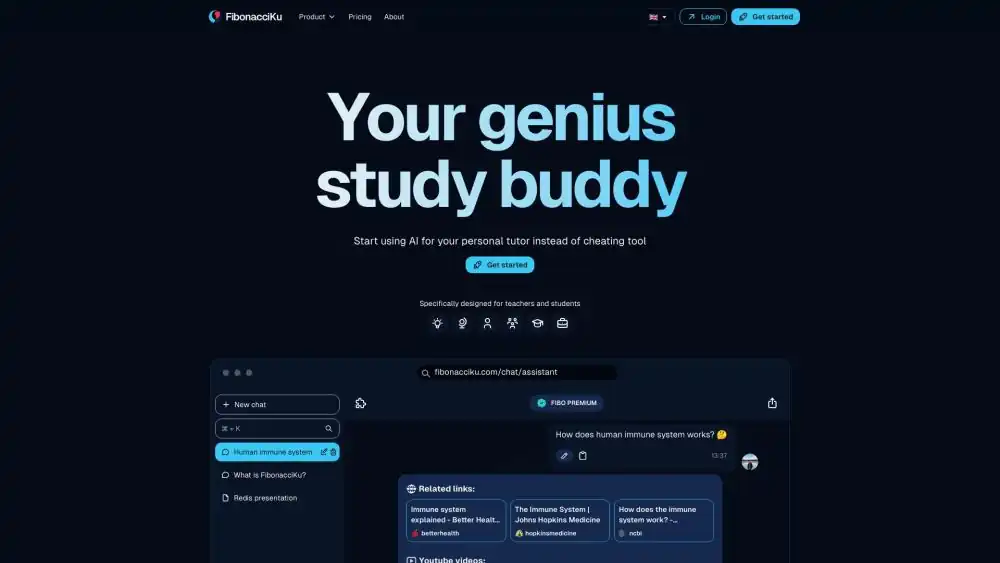FibonacciKu: A Poetic Exploration of Numbers
FibonacciKu is a unique form of poetry that combines the mathematical beauty of the Fibonacci sequence with the brevity and elegance of haiku. Inspired by the Japanese poetic form, FibonacciKu offers a fresh and innovative approach to expressing ideas and emotions.
Key characteristics of FibonacciKu:
- Fibonacci Sequence: The number of syllables in each line follows the Fibonacci sequence: 1, 2, 3, 5, 8, 13.
- Thematic Focus: FibonacciKu often explores themes related to nature, mathematics, or the human experience.
- Conciseness: Like haiku, FibonacciKu emphasizes brevity and the power of suggestion.
Example:
OneTwo threeFive eight thirteenGolden ratioNature’s beauty
FibonacciKu invites poets to experiment with new poetic forms and to explore the intersection of mathematics and language.
FibonacciKu: Pros and Cons
Pros:
- Unique Form: Offers a fresh and innovative approach to poetry.
- Mathematical Connection: Explores the intersection of mathematics and language.
- Conciseness: Emphasizes brevity and the power of suggestion.
- Versatility: Can be used to explore various themes and emotions.
- Creativity: Encourages experimentation and creativity in poetic form.
Cons:
- Limited Length: The strict adherence to the Fibonacci sequence can limit the amount of content that can be expressed.
- Complexity: The mathematical nature of FibonacciKu may be challenging for some poets.
- Lack of Recognition: May not be as widely recognized or understood as traditional poetic forms.
- Difficulty in Writing: Writing FibonacciKu can be challenging due to the specific syllable requirements.
Overall, FibonacciKu offers a unique and rewarding poetic experience, but it’s important to consider the potential challenges and limitations before attempting to write in this form.
FibonacciKu itself doesn’t have a direct pricing model. It’s a poetic form, not a product or service. However, if you’re interested in exploring FibonacciKu further or participating in FibonacciKu-related events or publications, there might be associated costs.
For example:
- Workshops or Classes: If you’re interested in learning more about FibonacciKu, there might be workshops or classes offered by poets or organizations. These may have a fee.
- Publications: If you want to publish your FibonacciKu poems, you might need to pay submission fees or royalties to certain publications.
- Online Platforms: Some online platforms might offer subscription-based services for poets, including access to resources or communities related to FibonacciKu.
To get more specific information about potential costs, I recommend checking with local poetry organizations, online forums, or participating in FibonacciKu-related events.
FibonacciKu Alternatives
While FibonacciKu is a unique poetic form, there are other poetic forms and related activities that you might find interesting:
Traditional Poetic Forms
- Haiku: A Japanese poetic form consisting of three lines with 5, 7, and 5 syllables respectively. https://www.poetryfoundation.org/categories/haiku
- Tanka: A Japanese poetic form consisting of five lines with 5, 7, 5, 7, and 7 syllables respectively. https://www.poetryfoundation.org/education/glossary/tanka
- Limerick: A humorous poem with a specific rhyme scheme and meter. https://www.poetryfoundation.org/education/glossary/limerick
Poetry Communities and Resources
- Poetry Foundation: A non-profit organization dedicated to promoting poetry. https://www.poetryfoundation.org/
- Academy of American Poets: A non-profit organization that supports poets and promotes poetry. https://poets.org/
- Poetry Slam: A competitive art form where poets perform their work in front of a live audience. https://www.venturacollege.edu/community/diversity-in-culture/performer-submission-form
Online Poetry Resources
- All Poetry: A large online database of poems from various poets and time periods. https://allpoetry.com/
- Poetry.com: A website dedicated to poetry, featuring poems, articles, and resources. https://www.poetry.com/
- Verse Daily: A website that publishes a new poem every day. https://dailyverses.net/
These are just a few examples, and there are many other poetic forms and resources available. The best option for you will depend on your interests and preferences.
FibonacciKu FAQs
Here are some frequently asked questions about FibonacciKu:
General Questions
- What is FibonacciKu?
- FibonacciKu is a unique poetic form inspired by the Fibonacci sequence and haiku.
- How is FibonacciKu different from other poetic forms?
- FibonacciKu follows a specific syllable pattern based on the Fibonacci sequence, making it distinct from traditional poetic forms.
- Who can write FibonacciKu?
- Anyone can write FibonacciKu, regardless of their experience with poetry.
Writing FibonacciKu
- What is the syllable pattern for FibonacciKu?
- The syllable pattern for FibonacciKu is 1, 2, 3, 5, 8, 13.
- Can I use any topic for a FibonacciKu?
- Yes, FibonacciKu can be used to explore various themes and emotions.
- How can I improve my FibonacciKu writing skills?
- Practice is key to improving your FibonacciKu writing. Experiment with different themes and styles, and seek feedback from others.
Resources
- Are there any resources available for learning more about FibonacciKu?
- While there may not be extensive resources specifically dedicated to FibonacciKu, you can find information on poetry in general and experiment with the form yourself.
- Where can I find examples of FibonacciKu?
- You may find examples of FibonacciKu in online poetry communities or anthologies that explore experimental poetic forms.
If you have any other questions, please feel free to explore online poetry resources or join poetry communities to connect with other writers.
Conclusion
FibonacciKu offers a unique and creative poetic form that combines mathematics and language. While it may have limitations and challenges, it can be a rewarding experience for those who enjoy experimenting with different poetic styles.
Key takeaways:
- Unique Form: FibonacciKu is a distinct poetic form based on the Fibonacci sequence.
- Mathematical Connection: Explores the intersection of mathematics and language.
- Conciseness: Emphasizes brevity and the power of suggestion.
- Versatility: Can be used to explore various themes and emotions.
- Challenges: Writing FibonacciKu can be challenging due to the specific syllable requirements and limited length.
If you’re interested in exploring new poetic forms and challenging yourself creatively, FibonacciKu is definitely worth considering.
![]()






